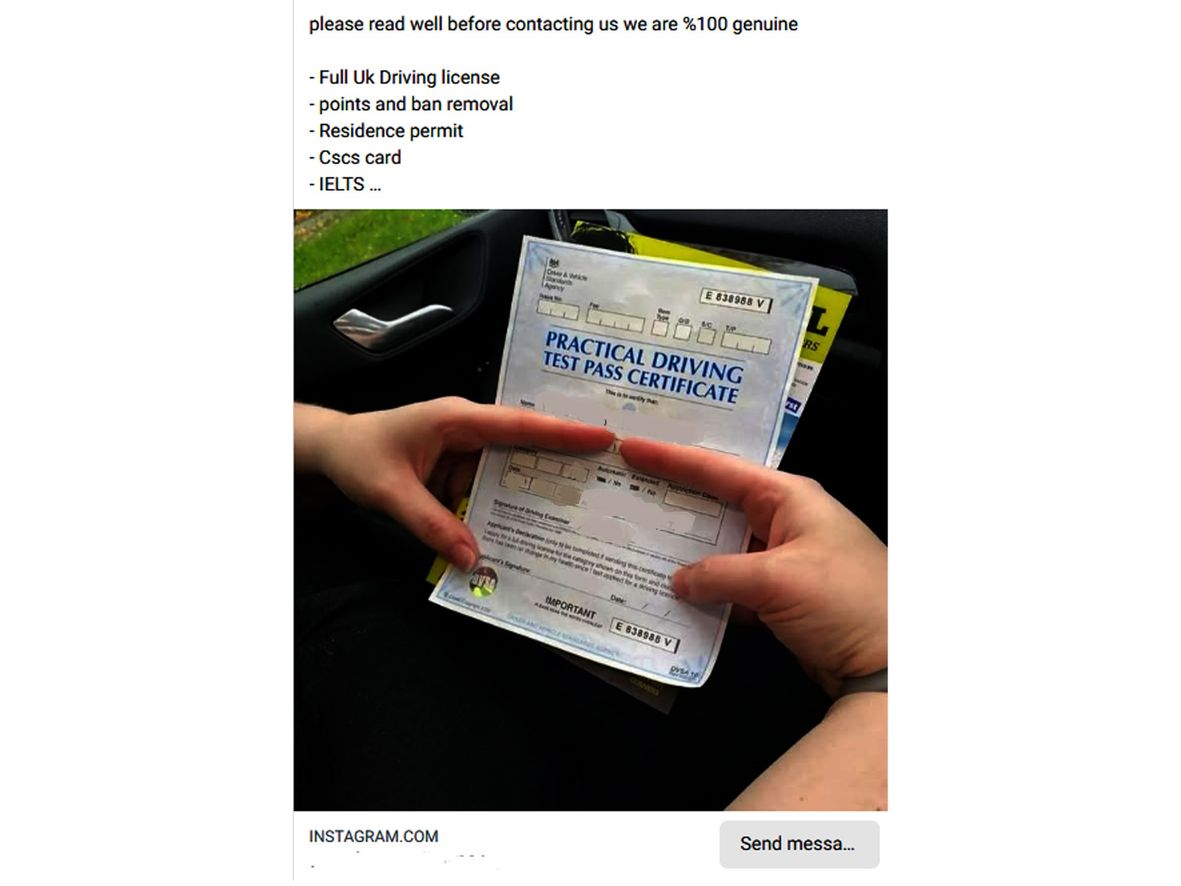Scam ads targeting learner drivers circulate on social media

Learner drivers should be wary of scams on social media as banks warn of an increase in scam reports.
TSB is the latest bank to warn about scams targeting learner drivers after revealing that losses for its customers have more than doubled in a year.
These scams predominantly happen when social media posts advertise driving lessons and tests that don’t exist, leaving learners out of pocket.
Analysing its customer data, TSB found that the average loss was £244. One scam reported to it saw a victim pay £500 for 20 lessons via TikTok for lessons that never materialised and someone else tried to pay £100 for a driving test advertised on Facebook.
Several victims have also been duped by fake DVSA sites they were led to via WhatsApp, forking out £350 for non-existent tests.
Here, we look at driving lesson and test scams and explain how to spot, avoid and report these scams.
Sign up for scam alerts
Our emails will alert you to scams doing the rounds, and provide practical advice to keep you one step ahead of fraudsters.
Sign up for scam alerts
Learner drivers targeted with scams
A previous Which? investigation in October 2024 found that driving test slots were being sold at inflated prices, with costs rising by as much as 190% (from £62 to £180).
These unofficial sellers were using bots (a type of automated software) to buy up test slots in bulk and sell them for higher prices. Worryingly, they asked learner drivers for their licence number, driving test reference number and email address, leaving victims vulnerable to identity theft and fraud.
Which? has also previously warned of fraudsters peddling fake driving licences via ads on social media. These ads claimed to sell UK licences for as much as £600 without the need for tests.
When we searched again for these types of scams, we found eight examples of scam adverts appearing on Facebook and Instagram between 10-12 March 2025. The adverts claimed to offer full driving licences without needing theory or practical tests.
All the adverts we found asked learners to contact them via WhatsApp or Instagram. We reported these adverts to Meta, the parent company of Facebook and Instagram, and it told us that it doesn’t allow fraudulent activity and works with law enforcement to support investigations and keep scammers off its platforms.
Meta told us that it was investigating the ads that we had reported.
If you are learning to drive, you should search for accredited driving schools or instructors on Gov.uk. Learner drivers can also use the official DVSA site to book a driving test. We do not recommend that you use a third-party service to book a driving test.
Online Safety Act
Tougher regulation for online platforms became law in October 2023 with the passing of the Online Safety Act. This gave the regulator Ofcom the power to fine companies that breach the Act up to £18m or 10% of worldwide revenue.
Online platforms must comply with the first set of duties under the Online Safety Act. The illegal harms codes of practice, set out by Ofcom, require online platforms, such as Meta and Google, to do more to prevent user-generated fraud. User-generated fraud in the scope of the Online Safety Act can cover posts such as listing items for sale on second-hand marketplaces.
The Online Safety Act also sets out requirements for platforms to prevent scam advertising. Further duties on this will apply in time, but under the current timetable set out by Ofcom, platforms in the scope won’t be held accountable until 2027.
Which? wants Ofcom to take strong action against platforms that don't comply and to implement the codes for fraudulent ads sooner to prevent people from falling victim to scam ads.
- Find out more: join our campaign to Stamp out Scams
Spot, avoid and report scam ads
Always be suspicious of adverts and posts that promote highly discounted prices, pressure you into making a decision quickly or ask you to send a payment to an account held in a random name. Always check the website address to see if it matches that of the genuine brand.
On Facebook and Instagram, you can report posts and ads by selecting the three dots in the top right corner and pressing ‘report’. Suspicious websites can be reported to the National Cyber Security Centre.
If you lose any money to a scam, call your bank immediately using the number on the back of your bank card and report it to Action Fraud, or call the police on 101 if you’re in Scotland.
Sign up for scam alerts
Our emails will alert you to scams doing the rounds, and provide practical advice to keep you one step ahead of fraudsters.
Sign up for scam alerts
This news story was originally published in March 2025 and updated on 24 September 2025 with new data from TSB.











